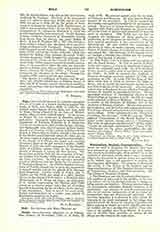

Nollet, JEAN-ANTOINE, physicist, b. at Pimpre, Oise, France, November 19, 1700; d. at Paris, April 25, 1770. His peasant parents sent him to study at Clermont and Beauvais. He went later to Paris to prepare for the priesthood. In 1728 he received the deaconship and applied immediately for permission to preach. Soon love of science became uppermost and together with Dufay and Reaumur he devoted himself to the study of physics and especially to research work in electricity. Abbe Nollet was the first to recognize the importance of sharp points on the conductors in the discharge of electricity. This was later applied practically in the construction of the lightning-rod. He also studied the conduction of electricity in tubes, in smoke, vapors, steam, the influence of electric charges on evaporation, vegetation, and animal life. His discovery of the osmosis of water through a bladder into alcohol was the starting-point of that branch of physics.
In 1734 Nollet went to London and was admitted into the Royal Society. In 1735 he started in Paris, at his own expense, a course in experimental physics which he continued until 1760. In 1738 Cardinal Fleury created a public chair of experimental physics for Nollet. In 1739 he entered the Academy of Sciences, becoming associate member in 1742, and pensionary in 1758. In April, 1739 the King of Sardinia called him to Turin to instruct the Duke of Savoy, and to furnish the instruments needed for the new chair of physics at the university. After lecturing a short time at Bordeaux, he was called to Versailles to instruct the dauphin in experimental science. He was appointed professor of experimental physics at the Royal College of Navarre, in 1753. In 1761 he taught at the school of artillery at Mezieres. Nollet was also a member of the Institute of Bologna and of the Academy of Sciences of Erfurt. He was calm and simple in manner, and his letters and papers showed that he had been devoted and generous to his family and his native village. Nollet contributed to the “Recueil de l’Academie des Sciences” (1740-67) and the “Philosophical Transactions of the Royal Society“; his larger works include among others:—”Program d’un tours de physique experimentale” (Paris, 1738); “Lecons de physique experimentale” (Paris, 1743); “Recherches sur les causes particulieres des phenomenes electriques” (Paris, 1749); “L’art des experiences” (Paris, 1770).
WILLIAM FOX

